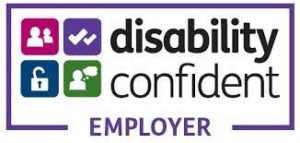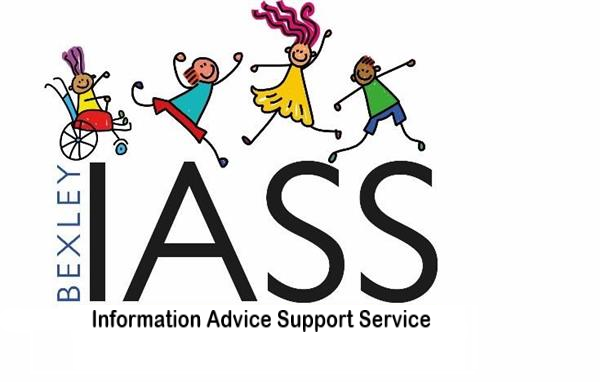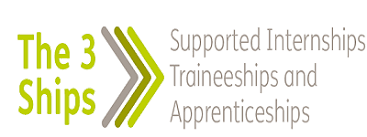Education: Aged 16 – 18
All young people, whether you have special educational needs / a disability (SEND) or not, are required to continue in some form of education or training until their 18th birthday. ( this is called Raised Participation Age )
Fortunately, when you turn 16 you will have a lot of options to choose from for education and training. Some of the options are:
School 6th forms (both mainstream and special schools);
Further Education (FE) colleges;
16-19 academies;
Special post-16 institutions, and;
Vocational learning and training providers.
There should be a wide range study programmes and this should include include:
Entry level qualifications such as English, Science and Maths
AS/A-levels
Vocational BTEC qualifications,
Apprenticeships,
Traineeships and,
Supported internships.
There are various colleges and 6th forms within the local area and they offer a range of academic and vocational courses which support young people towards independence and employment and which build on skills and interests.
The Bexley Local Offer has information for those looking to move onto further education, careers advice, apprenticeships and Traineeships in Bexley. Please click on the link to open the page: Education Decisions – Post 16 (including careers advice) | Bexley Local Offer
6th Form or College?
If you are considering moving on to 6th Form or College, make sure you look on the school and college websites to find out if they offer a course you are interested in, and arrange a visit on one of their open days are so you can look around, meet the staff, and learn more about the setting before making a decision.
If you feel you may struggle with a busy open day or have access needs, you can contact the college or 6th form and they might be able to support you to visit at a quieter time.
Transition Post 16
Once you reach the end of compulsory schooling (that is the end of the academic year in which you have turned 16), you become known as a young person and you have the power to make decisions about your own education.
Unless it has been agreed that you do not have Mental Capacity to be able to make such decisions.
Please CLICK HERE to understand what is meant by Mental Capacity.
Education: Age 18 -25
Once a young person turns 18, they would normally be classed as an adult learner.
In most cases, young people cannot stay on at a school beyond 19 as schools are not legally set up to provide education for adult learners, colleges are.
Some special schools have developed separate further education provision for 19-25 year olds.
Young people over 19 without EHC plans can be charged tuition fees, depending on the type and level of course they’re studying. Learners on certain benefits may be exempt: check the college’s fee policy. Certain courses may be free, for example basic Maths, English or employment skills, or a first GCSE or A level course. Colleges and training providers can also help with course fees at their discretion.
Young people aged 19-25 with an EHC plan receive free tuition, as long as the course meets the outcomes in their EHC plan.
The Bexley Local Offer has information for those looking to move onto further education, careers advice, apprenticeships and Traineeships in Bexley. Please click on the link to open the page: Education Decisions – Post 16 (including careers advice) | Bexley Local Offer
For Young People with an Education, Health & Social Care Plan (EHCP):
19- to 25-year-olds with EHC plans should have free access to further education in the same way as 16-to 18-year-olds. This also applies to Apprenticeships.
Colleges or training providers must not charge young people tuition fees as this is funded by the local authority and the Education & Skills Funding Agency (ESFA).
If you have a current EHCP in place and you wish to learn more about your rights, please click the link to go to our Your Rights and Having your Voice Heard page On this page you will find information about:
Understanding your Education, Health & Social care Plan (EHCP)
The Annual review of the Education, Health & Social care Plan (EHCP)
When the Local Authority can cease the Education, Health & Social care Plan (EHCP)
On the Your Rights and Having your Voice Heard page you will also find a helpful video to understand the EHCP and an Easy Read on preparing for your EHCP Annual Review.
For Young People without an Education, Health & Social Care Plan (EHCP):
If you have special educational needs (SEN) but do not have an EHC plan, you can still choose to remain in further education.
Colleges are funded by the Education & Skills Funding Agency (ESFA) for all students aged 19 and over who do not have an EHC plan (including those who declare a learning difficulty or disability).
Colleges are able to charge fees for these students, but must use their best endeavours to put the necessary special educational support you may need.
Your Finances:
If you are concerned about how you will pay for books, clothing, and other equipment for your course or, transport and lunch on days you study or train.
Please click on this link to the Bexley Local Offer where you will find information on the 16-19 Bursary and Vulnerable Student Bursary
Education: Are you considering University?
If you have an EHCP currently and plan to continue onto University, your EHCP will cease.
However, as a student with Special Educational Needs and /or a Disability (SEND) you can apply for Disability Student Allowance (DSA).
Disabled Students’ Allowance (DSA) is support to cover the study-related costs you have because of a mental health condition, long term illness, any other disability or SEND.
This funding can be on its own or in addition to any student finance you apply for.
The type of support and how much you get depends on your individual needs – not your parent carers or your own household income.
How much will I get?
The amount is decided by the Government and is capped for the 2022 to 2023 academic year:
Undergraduate and postgraduate students can get up to £25,575 a year for support.
Unlike any student loads you may get, the DSA is not paid back.
What kind of support can I get?
You may be able to have:
- specialist equipment, for example a computer if you need one because of your disability
- non-medical helpers, for example a British Sign Language (BSL) interpreter or specialist note taker
- extra travel to attend your course
- other disability-related study support, for example having to print additional copies of documents for proof-reading
How do I apply:
You can Apply on the Government website when you make an application for student finance: DSA Application
Many colleges offer a variety of programmes, there are also programmes linked with employers which help you to train for a career and may lead to paid employment.
Please CLICK HERE for information on the Mencap 3 ships programme for young people with a Learning Disability.
Please CLICK HERE for more information on Bexley’s Supported Internship programme for 16-24 year olds with an EHCP.
Please CLICK HERE for more information on from the Bexley Local Offer on Apprenticeships, Traineeships and Supported Internships.
If you are considering an Apprenticeship, Traineeship or a Supported Internship and you wish to learn more about your rights, please click the link to go to the Your Rights and Having your Voice Heard page
Employment: Are you considering leaving education & finding work?
If you are considering moving onto employment, there are several ways to get support:
The Local Job Centre:
You can speak to the local jobcentre who will provide employment support. Employment support usually incudes developing skills to help you with:
- Building confidence.
- Writing a CV.
- Where to look for job vacancies.
- Writing emails to employers.
- Filling out application forms.
- What to wear for an interview.
- Interview skills.
- Support to do a job.
- Health and wellbeing support.
- Welfare and benefits advice.
The job centre should also tell you about disability-confident supportive employers in your area. There are over 6,000 Disability Confident employers in the UK.
When you’re looking for work, look on adverts and application forms for this ‘disability confident’ symbol.

This symbol means:
- the employer is committed to employing disabled people
- you’ll be guaranteed an interview if you meet the basic conditions for the job
Local Supportive organisations:
Please Click Here to access the Bexley Local Offer Employment, Work and Careers Advice Page for Young People with Special educational Needs and/or a Disability includes the following information on local services providing:
- Careers Advice
- CV Writing
- Finding a job
- Job Applications
- Employment Support
What you can do:
There are also things you can start doing for yourself:
Start to consider whether you would like to disclose your disability or health condition
You may be worried that your new employer won’t offer a job if you say you have Special Educational Needs and / or a Disability (SEND). However, its important to know that you cant ask for support or adjustments in the workplace unless the employer knows how to support you. Whether you disclose your Special Educational Needs and / or a Disability (SEND) is a personal decision.
Adjustments for job interviews
If you feel you need an adjustment to attend an interview such as British Sign language (BSL) interpreter or a wheelchair accessible room, you must let the employer know in advance so they can make preparations.
During the interview an employer should not ask about any Special Educational Needs and / or a Disability (SEND), even if it’s apparent.
It is up to you if you want to discuss it or disclose any information about your conditions.
Understanding your rights in employment:
If you are considering moving onto looking for work and you wish to learn more about your rights in employment, please click the link to go to the Your Rights and Having your Voice Heard page of this site.
On this page you will find information on:
Information regarding local organisations that can support you to prepare for work and with careers advice
Your rights in work
Information on Reasonable Adjustments in the workplace
Information on the Government fund Access to Work to support disabled people in employment.
Are you finding this decision difficult?
If you are finding your decision difficult, you can speak to Bexley Youth Advice Centre (Shaw Trust/Prospects) who provide support, advice and guidance on a range of topics for young people with Special Educational Needs and or a Disability (SEND) aged between 13 – 25 years of age.
Please CLICK HERE for more information on the Bexley Youth Advice Centre and on how to contact them.
(Once you have opened this page on the Local Offer site, scroll down to the blue panel on your right)
The Bexley Post 16 Directory:
The Bexley Post-16 Directory details the learning offer starting in September each year and is available on the Post 16 page of the Bexley local Offer: CLICK HERE
The directory provides information on:
- the options and choices available post-16 including sixth forms, colleges, traineeships and apprenticeships
- local post-16 open events; and
- sources of further information
The Bexley Decisions Post-16 Directory details the learning offer in Bexley starting in September each year.
Bexley Decisions Post-16 Directory 2024 – 2025
Moving completely online this year, the Bexley Decisions Post-16 Directory for 2024 – 2025 is now available at: www.bexley.gov.uk/post16
We hope you find the Decisions Post-16 Directory useful. If you have any feedback, please email us: [email protected]
The new directory has 2 core elements:
- The webpages contain an overview of the different types of qualifications offered by post-16 settings in Bexley, information, advice, and guidance for young people and their parent/carers and details on popular post-16 settings outside of Bexley.
- A brand-new course directory web application that contains information on the planned post-16 offer from Bexley’s school sixth forms, sixth form colleges, further education colleges, special sixth form schools and independent training providers, along with details of their open evenings and events for admission from September 2024.
Use this combination of services to help you find what you’d like to do next, check the entry criteria and get your application in as soon as possible. If you need help with your application, speak with your parents / carers, teachers, or school’s careers adviser.

Who should I speak to for advice?
When school, college or other placement isn’t working out for you it can make you feel worried, frustrated or unhappy. Everyone is different so the help they need to do well is going to be different too. The most important thing is getting your views heard. That way staff can help you get the best out of your chosen placement.
Who you can speak to:
- Your parents or carers
- If you are in Education, your class teacher, form tutor, the SENCO (Special Needs Co Ordinator), Inclusion Manager or another member of staff.
- You can also speak to us: Bexley SEND IASS
You can contact us by telephone, email or fill in our self referral form on the website. The links are below:
Call us on:
0203 045 5976
Email us at:
[email protected]
Ask your parent carer
to fill in a self referral form

